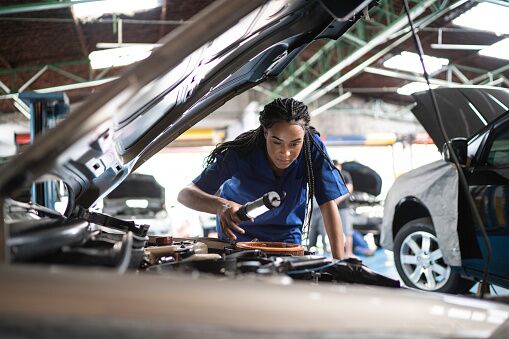All Categories
Featured
Your car's brakes are one of one of the most critical components in ensuring your safety and security and the safety and security of others on the road. Routine brake evaluations are important to maintaining optimum stopping performance and avoiding expensive repair services. Whether you're a seasoned vehicle proprietor or a new motorist, comprehending brake examination guidelines can help you remain aggressive concerning maintenance and guarantee your automobile is constantly roadworthy.
- Why Brake Inspections Matter. The even more you drive, the much more rubbing your brake pads sustain, at some point leading to lowered braking performance. Without proper assessment, it's tough to assess when your brakes could be in demand of repair work.
A well-maintained brake system makes certain fast, responsive quiting power, specifically in emergencies. It also assists expand the life of your lorry, as disregarding brake maintenance can lead to much more severe, costly troubles later.
- Signs You Need a Brake Inspection. While it's vital to have your brakes inspected occasionally, particular indications may indicate that they require interest. Watch (and ear) out for these caution signals:
Squeaking or Grinding Noises: Uncommon audios, especially a high-pitched squeal or grinding noise, frequently suggest that your brake pads are used down. Vibration or Pulsation: If you really feel resonances or a pulsing sensation when pushing the brake pedal, it might be an indication of deformed rotors or uneven brake pad wear. Lowered Brake Responsiveness: If your brakes feel much less receptive or you have to press the pedal harder to decrease, it may indicate air in the brake lines or low brake fluid. Drawing away: If your vehicle pulls to one side when braking, it might imply uneven brake pad wear or a brake fluid leak. Control Panel Caution Lights: Some cars have brake-related warning lights that suggest issues like reduced brake fluid or worn brake components. If you notice any one of these symptoms, it's crucial to have a professional mechanic do a brake evaluation immediately.

- What Happens During a Brake Examination? During a brake examination, a technician will examine numerous vital components of the stopping system to ensure everything is in functioning order. Right here's what you can anticipate throughout the process:
Brake Pads and Shoes: The mechanic will certainly evaluate the thickness of the brake pads or footwear. If they're as well thin, they'll require to be changed. Brake Rotors: Blades are the discs that the brake pads press versus to slow your auto down. They'll be checked for any type of signs of wear, racking up, or bending. Brake Fluid: Reduced or contaminated brake liquid can hinder stopping performance. The professional will examine the fluid level and high quality and top it up or flush it if required. Brake Lines and Pipes: Brake lines lug liquid from the master cylinder to the brakes. The technician will check for any leakages, cracks, or damages to make certain proper fluid circulation. Brake Calipers and Wheel Cylinders: Calipers and wheel cyndrical tubes press the brake pads versus the blades or drums. The technician will certainly look for wear, leakages, and appropriate procedure. 4. Just how Frequently Should You Have Your Brakes Evaluated? The frequency of brake assessments depends on variables like your driving practices, the type of vehicle you drive, and the environment in which you drive. As a basic policy, it's an excellent concept to have your brakes evaluated every 12,000 miles or when a year. Nonetheless, if you experience any of the caution indications discussed previously, it is very important to get your brakes checked quickly.
For those that often drive in hefty web traffic, mountainous surface, or rough climate condition, even more constant inspections may be needed.
- Importance of Timely Brake Services. When you discover an issue with your brakes, it's necessary to address it right now. Delaying brake repair services can result in even more substantial damage to your braking system, causing greater repair costs. In severe cases, disregarding brake problems can cause finish brake failing, which is a serious security danger.
By remaining on top of brake upkeep and dealing with issues immediately, you make sure that your brakes proceed to execute as meant, keeping you and your travelers secure when driving.
Conclusion: Keep Your Brakes in Leading Forming. Brake inspections are a straightforward yet essential part of vehicle maintenance. By understanding the relevance of routine examinations, knowing the signs of brake concerns, and remaining aggressive with repair work, you can guarantee your lorry's braking system continues to be in ideal condition.
Latest Posts
Add Comfort and Personality to Your Home with Location Rugs
Fashionable Comfort Starts from the Ground Up
Inquire for Your Desire Event at Fun City Hotel
